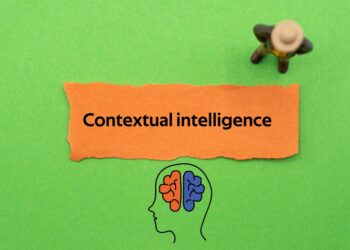Amid a highly competitive business landscape, sustainability has become a linchpin driver for success. That’s why forward-looking industrial companies are prioritising the environment and resources – and using cutting-edge technologies to do so.
Focusing on sustainability enables businesses to create value for their stakeholders, while conserving the planet and supercharging operational performance. It’s no wonder then that recent research from AVEVA reveals 89% of industrial businesses are investing heavily in digital transformation to meet their sustainability goals.
Today’s industrial winners will be those that embrace highly specialised digital technologies to optimise performance and resilience.
In particular, future industry leaders will leverage application specific artificial intelligence (AI) in the cloud to help them grow revenue and optimise production efficiency and sustainability. Such companies are already turning to digitisation to dramatically reduce operational risk through the use of predictive maintenance and AI-driven scheduling to boost supply chain economics.
What’s clear is that AI isn’t one thing or one technology – it’s an expansive term that describes different mathematical techniques with the ability to recognise patterns, detect anomalies, provide expert guidance, and make predictions about what might happen next. When these capabilities are specifically primed for industrial operations, the benefits are exponential.
By connecting an organisation’s data and then utilising AI to gain insights into operations, it’s possible to establish better ways of working, operate much more efficiently, and create environmentally-conscious industrial workspaces.
Specialised AI will supercharge businesses
In the coming years, advancing AI will drive huge wins across all industries – slashing fuel consumption, improving carbon capture, lowering emissions, and maximising equipment lifecycles.
AI-powered solutions are already helping industrial businesses engineer faster through suggestive design and simulation; operate at optimal production levels for maximum efficiency; provide decision support to connected workers; reduce waste for maximum yield; and recognise potential equipment before they can occur.
What do all of these benefits have in common? They benefit businesses, customers, ecosystem partners and the planet. That’s the power of AI – it can link operations, engineering, maintenance and IT data to provide a single-source-of-truth that benefits all parties optimise across their entire value chain
By leveraging Industrial AI, companies gain the knowledge and agility to respond to changing conditions in real-time for greater safety, profitability, and sustainability. It’s also possible for companies to gain insights into engineering and operations to develop performance calculations and assess the impact AI is having on improving Co2 emissions.
The future of sustainability is automated
Ultimately, AI technologies have begun to evolve from task-based to objective-driven with human supervision. This is an industry leap forward that offers huge business benefits. AI goals can now be set and information can be dynamically linked in context.
For example, by leveraging in-house company data alongside highly specialised and customised Large Language Models (LLMs), an employee can ask natural language questions of the system with minimal setup required. The user can ask objective-driven questions, like ‘Can I see a 3D model of my wind farm?’ or ‘Which windfarm has the lowest energy output this week?’
Or another case in point: companies can use specialised AI-assisted vision technology to increase situational awareness and prevent machine failure. It’s now possible to employ infrared or thermal cameras to locate visual anomalies, or even identify if an operator is missing a hard hat.
Companies around the world are already realising massive sustainability and productivity benefits through applied industrial AI. For example, US power giant Duke Energy saved over $250 million by installing predictive models which reduced errors, enabled faster results and boosted ROI. Or take Schneider Electric, which was able to prevent three full factory outages by predicting issues in advance.
Still, it must be noted that AI is not a replacement for human intellect, rather it should be viewed as an enabling tool and partner. AI will continue to evolve in stages. It is destined to progress from today’s software that assists humans, to software that works alongside humans – workers who are deeply connected to the technologies through easy-to-use interfaces.
In this world, industrial businesses will become smarter, faster and, ultimately, better. Tomorrow’s leading companies will be those that thread highly specialised AI throughout their operations – leveraging digital insights and intelligence to drive sustainability through their organisations.










Discussion about this post